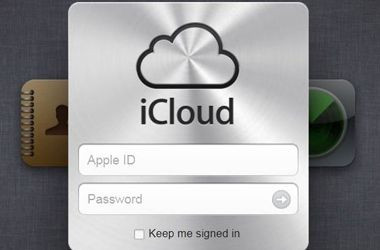How Nero Plans To Rival Apple Inc (AAPL), Google Inc (GOOG) In Cloud Computing [VIDEO]

Nero AG, best known for developing Nero Burning ROM, could rival tech giants Apple Inc. (Nasdaq: AAPL) and Google Inc. (Nasdaq: GOOG) by looking toward the future convergence of technology by syncing devices in a new way.
“We have basically two branches that we work on. There’s still a PC-based product that’s our legacy product. That’s where we focus more on the capability of syncing, but not necessarily using the cloud. We have functionalities that also connect through the cloud, for example Google Drive, Drop box, in order to be able to use the content,” said Stefano Miotto, technical director EMEA & APAC at Nero AG.
Nero AG, founded in 1995 as Ahead Software AG, creates software that helps consumers around the world organize videos, photos and music through its NeroKwik service, giving consumers a way to share photos across mobile devices, cloud storage services and online social networks.
Miotto explained Nero has two ways to sync devices: the local way and through mobile apps.
“We focus there on a more local type of syncing, basically wireless, or over a USB cable and then optimizing content for those different types of devices that’s one thing. Then we have mobile apps that we started developing a few years ago,” Miotto said.
Nero is currently working with Motorola Solutions Inc. (NYSE: MSI), Toshiba Corporation, Dell Inc. (Nasdaq: DELL) and others to design the next breakthrough in content convergence.
“It’s more about managing content, managing pictures and then it will be video in the future, and using the cloud basically to synchronize all those devices to basically have a unified view of your content on any type of different manufacturers device,” said Miotto. “So it could be a Samsung device working with a PC, or it could be a LG smartphone working with a Samsung tablet. We support the different, the more common type of operating system, so Android iOS, Windows 8. Our apps basically enable this type of use.”
Miotto also discussed how the user experience for Nero has not changed.
“It’s always been about the capability of being able to share content, being able to enjoy content,” he said. “So back in the days when we started with the burning software, we were basically providing a tool that was allowing customers to enjoy their music on the go. Right now we’re basically doing the same, we’ve just modified let’s say the media that we’re using to allow the customers to do that. Implementing support for all of those new devices, for tablets, smartphones. But the user case really hasn’t changed. It’s still about being able to share content, being able to enjoy content with whatever type of device you might be able to buy or use that has been developed in the latest years.”
As for the future of the personal computer, Miotto said the PC has yet to die off.
“I think it’s just in a different form. Manufacturers are doing a good job in providing new types of devices,” he said. “What we see from our type of research is that the PC is not as eccentric as it was in the past. That type of platform is not as eccentric as it was in the past when you look at the device landscape that somebody might have at home, but it’s still something that is still relevant because most of the user cases, most of the tasks that people would like to do when it comes to digital content. It’s still something that you actually do when you sit down at a PC.”
Because of hybrid laptops and hybrid PCs, Miotto explained users can operate convertibles as a tablet, or a regular desktop.
“It’s the same thing with the Apple environment. Some things you can do on tablets, some things you can do on smartphones, but for more detailed type of projects, you still will have to use a Mac,” said Miotto. “That’s basically the same with regards to the PC. It’s still relevant, not as eccentric anymore, but still something that’s relevant here in the near future.”
© Copyright IBTimes 2025. All rights reserved.





















